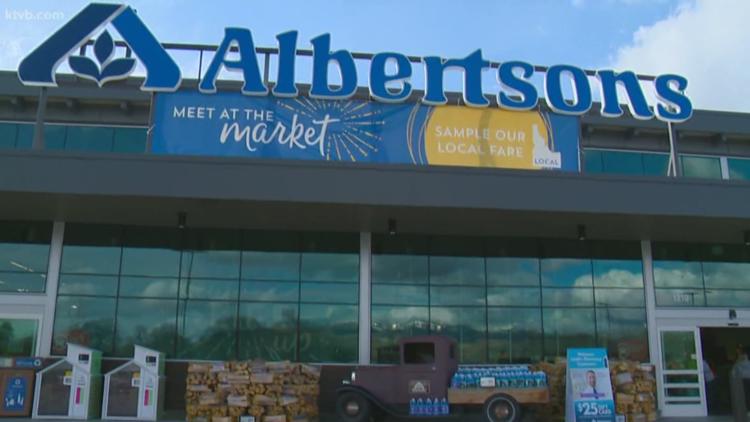BOISE, Idaho — Albertsons Companies this week took another step toward going public for the first time since 2006, when the former Albertsons, Inc., was split into three entities.
Albertsons announced in March that it filed Form S-1 form with the Securities and Exchange Commission, a registration statement indicating that the company plans to make an initial public offering of company stock on the New York Stock Exchange.
That was in the earlier days of the coronavirus pandemic. The stock market was extremely volatile, and still headed toward its lowest point for this year. Now Albertsons is sharing updated earnings information with regulators and prospective investors in an amended S-1 filing, filed Tuesday, May 5, with the SEC.
That filing came five days after Albertsons released its fourth-quarter and full-year results for the 2019 fiscal year, which ended February 29. That earnings report includes an update on sales over the past two months, and it says that sales have skyrocketed.
The company reported net income of nearly $467 million for FY 2019, compared to about $131 million for the previous year. Sales grew by 2.1%, and digital sales grew by 39%.
Since then, in March and April of this year, Albertsons says, "the Company has experienced significant increases in customer traffic, product demand and overall basket size in stores and online as customers adjust to the circumstances around COVID-19."
Albertsons reports a 34% increase in sales for the eight-week period between March 1 and April 25, compared to the same period a year ago.
Grocery stores are among the businesses deemed "essential," and have remained open as stay-home orders and social-distancing guidelines forced many other businesses to cut back operations or close.
In its prospectus, Albertsons notes the risk posed by coronavirus to the company's employees, customers, vendors and the communities where it operates.
The prospectus advises potential investors to carefully consider several risks, many of which exist at just about any time for the grocery business, such as changing prices for fuel and food. Risks related to coronavirus and the steps taken to curb the spread include "substantial uncertainty about the strength of the economy," which has experienced rapid increases in unemployment rates, as well as uncertainty about the pace of recovery, despite the fiscal stimulus actions by Congress.
Other factors include potential product supply disruptions, such as the meat supply, which has been affected by shutdowns at packing plants because of illness in the workforce.
Albertsons announced several changes in response to coronavirus. Other grocery companies have taken similar steps.
Here's what Albertsons says it has done:
- Increased the frequency of cleaning and disinfection of all departments, restrooms, check stands and service counters.
- Installed cart wipes and hand sanitizer stations in key locations within stores.
- Adjusted store hours in certain stores to give store teams the time they need to rest, restock shelves and clean and disinfect.
- Reserved special times for seniors and other vulnerable shoppers who must leave home to obtain their groceries.
- Installed plexiglass in checkout lanes in all stores to serve as a protective barrier at the check stand.
- Secured masks and gloves for front-line employees.
- Limited store occupancy to ensure proper social distancing during all hours, and further limited occupancy during times reserved for our most vulnerable customers to improve safety.
- Hiring additional pickers and drivers for online offerings.
- Instituted “contact-free” delivery procedures for home delivery and Drive Up and Go.
- Announced a temporary increase in pay for all front-line associates of $2 per hour for every hour that they work beginning March 15, 2020.
- Hired more than 55,000 new associates since March 1.
Albertsons' IPO is at least a few months away.
The amended filing is subject to review by the SEC, and by prospective investors.
Albertsons has not stated a date for its IPO, only that the proposed stock sale will begin "as soon as practicable" after its registration statement is declared effective.
Albertsons Companies is one of the largest grocery and drug retailers in the U.S., with 2,252 retail groceries, 1,726 pharmacies and more than 400 fuel centers.
The company, then known as Albertsons LLC, became Albertsons Companies in 2013 after buying stores that had been part of the Minnesota-based SuperValu company since 2006, when SuperValu, CVS, and a private-equity group led by Cerberus each acquired parts of Albertsons, Inc.
Albertsons founder Joe Albertson opened his first grocery store in 1939, at the corner of 16th and State streets in Boise.
Vivek Sankaran is the current president and CEO. He came to Albertsons in 2019, from PepsiCo, about four years after Albertsons completed a merger with Safeway.



